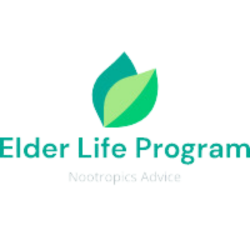Delirium is a state of mental confusion that can occur in patients during a hospital stay, particularly among older adults. This condition can be distressing for both the patient and their family, but there are steps you can take to minimize the risk of delirium. In this article, we will discuss ten tips for reducing the risk of delirium, the symptoms to watch out for, and how nootropics may play a role in managing this condition.
Ten Tips for Reducing the Risk of Delirium in the Hospital:
- Provide a comprehensive medication list: Bring a complete list of all medications, including the medication bottles, to the hospital. This ensures that hospital staff are aware of any potential drug interactions that could contribute to delirium.
- Create a medical information sheet: List all allergies, physician contacts, pharmacy information, and known medical conditions. This will help hospital staff provide appropriate care.
- Bring essential personal items: Glasses, hearing aids, and dentures can help maintain a sense of normalcy for the patient.
- Familiarize the environment: Bringing familiar objects from home can help reduce anxiety and confusion.
- Orient the patient: Calmly and reassuringly inform the patient of their location and reason for being there.
- Simplify instructions: When giving instructions, provide one simple task at a time to avoid overwhelming the patient.
- Offer calming activities: Massage or other soothing activities can help alleviate stress.
- Maintain a support system: Stay with your loved one as much as possible to provide comfort and familiarity.
- Report symptoms promptly: Notify medical staff immediately if you notice any symptoms of delirium.
- Educate yourself: Learn more about delirium to better understand and manage the condition.
Symptoms of Delirium:
Symptoms of delirium can vary and may fluctuate throughout the day. These may include confusion, difficulty understanding surroundings, disorientation, nonsensical speech, personality changes, hallucinations, paranoia, withdrawal, anxiety, agitation, and changes in sleeping or eating habits.
The Role of Nootropics in Delirium Management:
Nootropics are cognitive-enhancing substances that may have potential benefits in managing delirium. Some nootropics, such as citicoline or phosphatidylserine, may improve cognitive function and reduce symptoms associated with delirium. However, it is essential to consult a healthcare professional before using nootropics to ensure they are safe and appropriate for the patient’s specific situation.
Conclusion:
By following these tips, providing a supportive environment, and considering the potential benefits of nootropics, you can help reduce the risk of delirium in the hospital. Early detection and appropriate intervention are crucial to managing this condition and minimizing its impact on the patient’s overall well-being.
